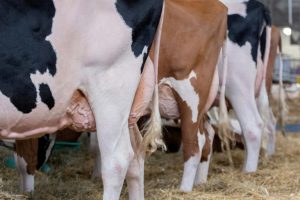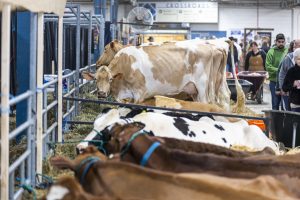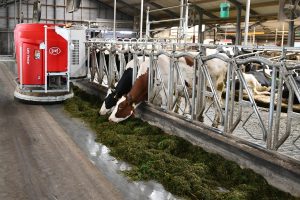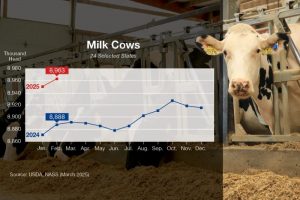
Mastitis costs the U.S. dairy industry $2 billion annually, and Staphylococcus aureus is one of the most prevalent contagious pathogens, according to an article published by the William H . Miner Agricultural Research Institute October Farm Report.
Purified protein vaccines use the specific proteins in bacterial cell walls that induce disease mechanisms in the cow. By training the cow to respond to the cell wall proteins, rather than only the specific pathogen, sometimes one vaccination can be effective against more than one pathogen.
Such is the case with research conducted at the University of Tennessee and published in a recent volume of Veterinary Immunology and Immunopathology, according to the Farm Report article. Inoculating cows with Staphylococcus chromogenes pathogens also prevented intramammary colonization of Staphylococcus aureus.
At a time when dairy producers face increasing public concern of antibiotic use, purified protein vaccines for Staphylococcus chromogenes and Staphylococcus aureus provide an alternative to control mastitis infections.
Even when antimicrobials are used, they are typically developed for gram-negative bacteria. Since Staphylococcus species are gram-positive, using many of these antimicrobials requires a veterinarian for off-label use. Additionally, many antimicrobials have withholding times before milk can be sold.
While purified protein vaccines are not a new research topic, this study’s findings are unique for the ability to prevent new infections in comparison to current mastitis vaccines on the market. While the exact mechanism of immune response are not yet known, it may be encouraging to know Staphylococcus pathogens may one day be used for good.
























